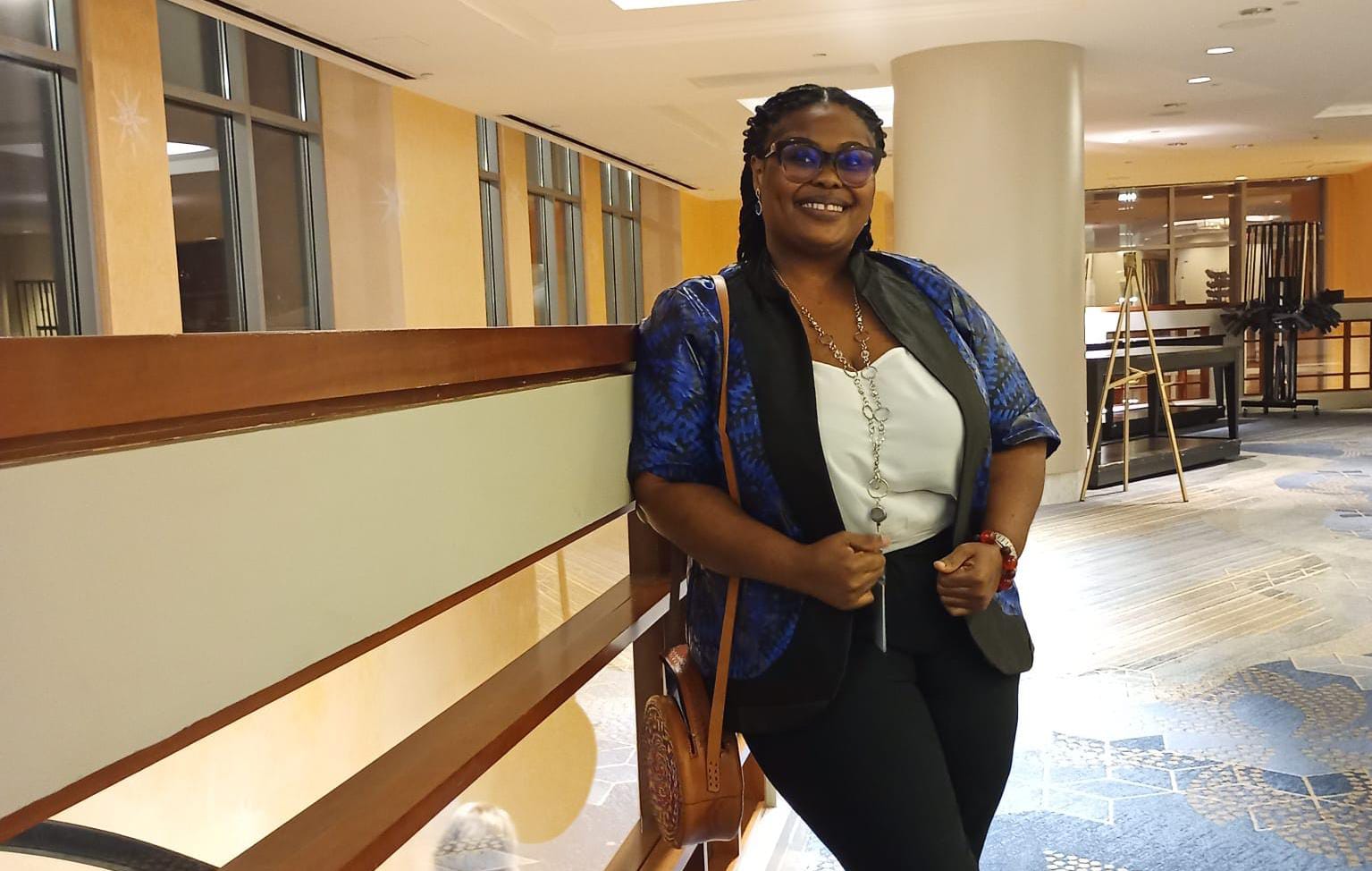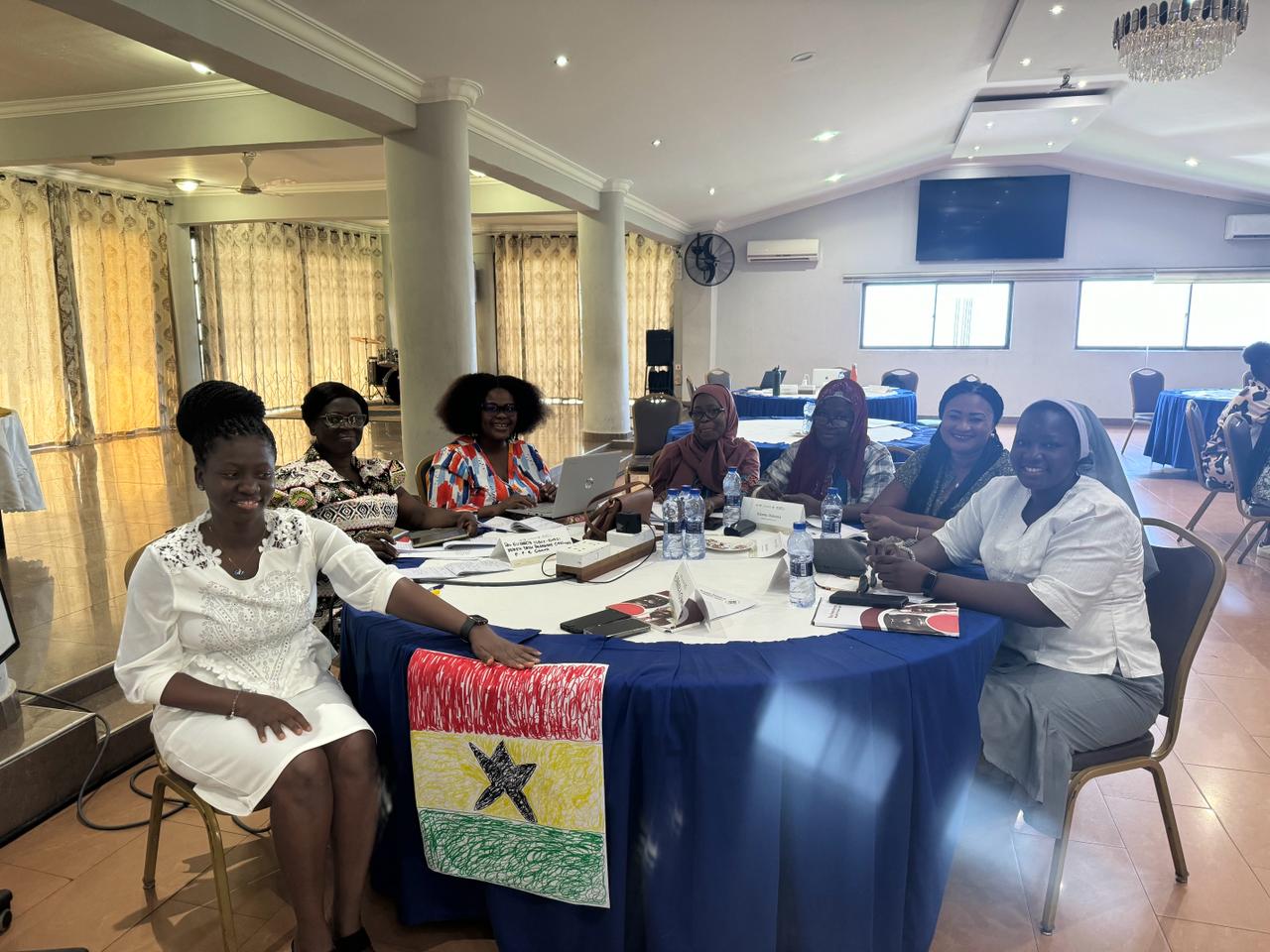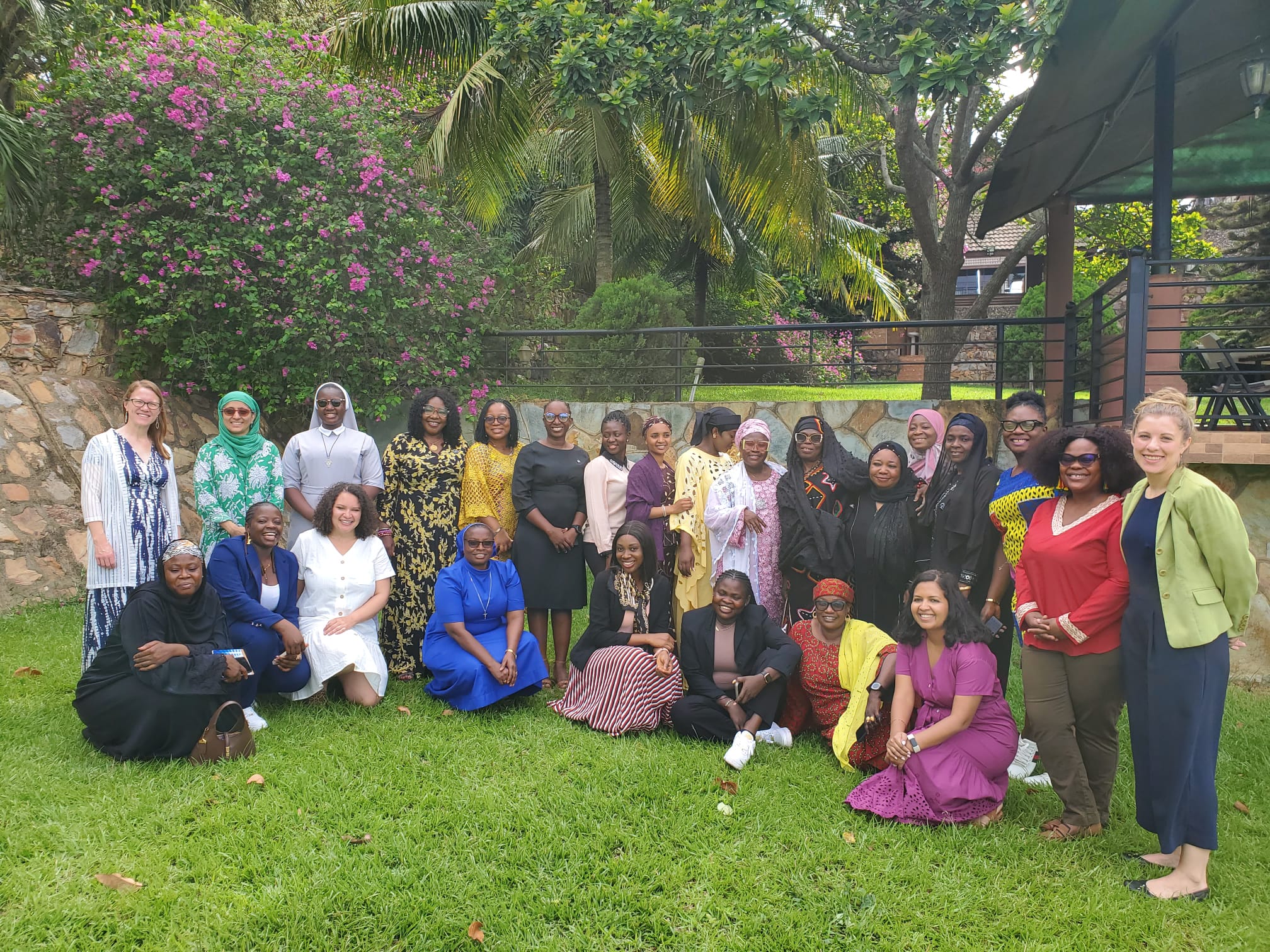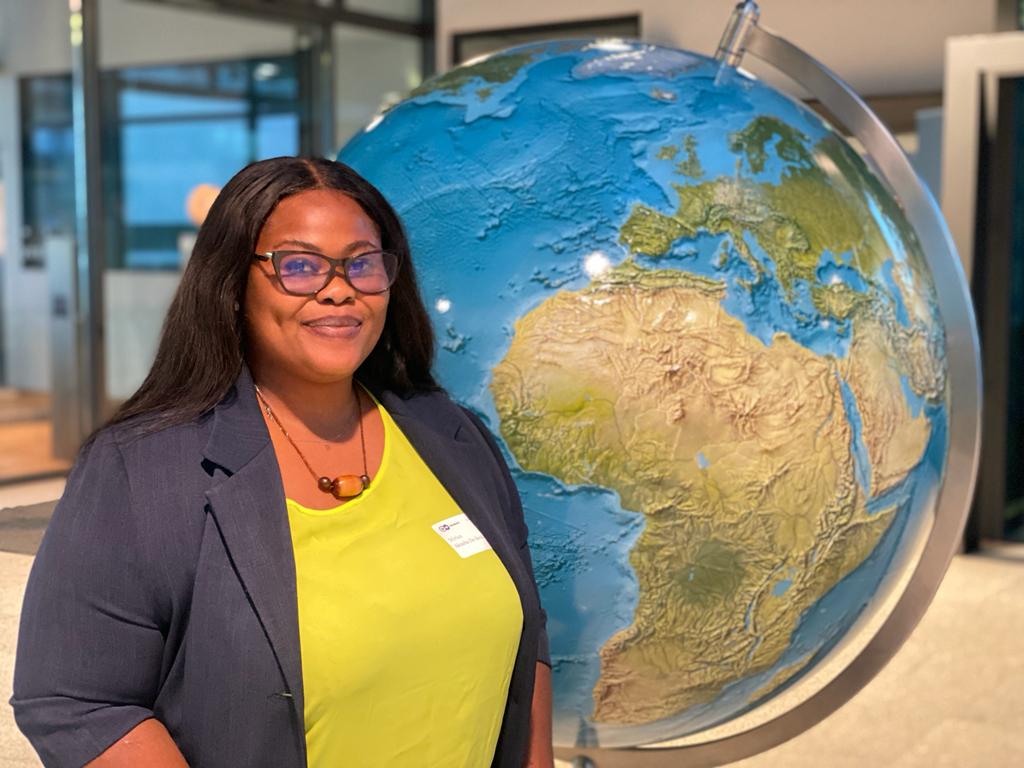Blog
Empowering Women in Peacebuilding:
My Transformative Journey at the Religion, Peace Mediation, and Leadership Training in Ghana
A reflection piece of the women faith-based mediator training in Accra, Ghana
by Mirianne Ovidio De-Souza
I was thrilled at the opportunity to attend the 4-day Training on Religion, Peace Mediation, and Leadership for Women Faith-Based Mediators in Accra, Ghana, organized by The Network for Religious and Traditional Peacemakers, the Center for Women, Faith, and Leadership at the Institute for Global Engagement, and the Sanneh Institute. This inaugural training promised to be a transformative experience. I was eager to meet fellow women mediators and peacebuilders and learn from their global experiences.

Mirianne Ovidio De-Souza at the Women Faith-Based Mediators training in Accra, Ghana.
The program outline was impressive, aligning perfectly with my education and professional background. Considering that the course was newly developed, and its content derived from the research and analysis conducted by the Network in 2023 focused on understanding the challenges and opportunities that young women faith-based mediators encounter in peace mediation processes.
With seven years in interfaith education and engagement, and through currently pursuing a Master’s Degree in International Peacebuilding with a focus on Mediation, Trauma Healing, and Interreligious Engagement, this training was an invaluable opportunity to enhance my skills.
The first day focused on how worldviews influence attitudes and behaviors in conflict situations. We discussed the spiritualization of struggles and the importance of prayer, meditation, retreats to reconnect, and setting boundaries as women mediators. We also explored case studies of Women Faith-Based Mediators (WFBMs) and highlighted the challenges we face, including issues of religion and culture, trust, bullying, exclusion, ignorance, and community backlash.

Cameroonian Faith-based Women and Young Women Mediators.
The second day emphasized personal leadership. We delved into creating and revising our leadership plans, reconnecting with our values and intentions, and maintaining physical, mental, and spiritual health. Understanding my worldview was highlighted as crucial for conflict analysis. I learned to recognize what is beautiful in my journey, acknowledge challenges, and look forward to daily experiences. The session on scriptural reasoning in peace mediation spaces was particularly enlightening, providing clarity on Islamic traditions, and enhancing my understanding and approach. We also looked at compassion fatigue and vicarious trauma, and how addressing our trauma or challenges can help in our leadership journey.
We conducted conflict mapping and designed inclusive peace mediation processes. Divided into country-specific groups, the Ghanaian team addressed the Chieftaincy Conflict. We examined past efforts and developed inclusive strategies from a woman’s perspective. We also had the opportunity to engage in a conversation with a traditional ruler from Ghana, in the person of, Nana Ekuful IV (Chief Michael Ayensah) on the topic “The Need for Male Allyship in Advancing Women Faith-Based Mediators,” where he emphasized the qualities, challenges, and strategies for male allyship in our work to be able to influence change from within.

Participants and trainers group photo.
The training concluded with engaging mentorship and role-play activities, providing practical insights and a dynamic learning experience.
Throughout the training, I observed a seamless integration of topics, creating a cohesive and comprehensive learning journey. This experience was life-changing, reinforcing the importance of not only mediator neutrality but also the perceptions people hold of mediators. This training has empowered me to continue my work with renewed vigor and enhanced skills, contributing to peacebuilding efforts with confidence and resilience. This insight will undoubtedly shape my approach to mediation in the future.
In summary, this training was an invaluable experience that strengthened my skills as a peacebuilder and mediator. The connections made and lessons learned will continue to inspire and guide my journey in promoting peace and understanding across faiths and cultures.
About Mirianne Ovidio De-Souza

Mirian Akuaba De-Souza is a Ghanaian-born Togolese. She earned a Bachelor’s degree in Social Work with Sociology from the University of Ghana, and a Master’s degree in Public Sector Management from the Ghana Institute of Management and Public Administration (GIMPA). In 2021, Mirian participated in the International Training on Dialogue and Mediation (ITDM) organized by the Uppsala University Department of Peace and Conflict Research (DPCR) in collaboration with the Dag Hammarskjöld Foundation and now is a member of the DPCR ITP Alumni Network. She has also been trained by Deutsche Welle (DW) Akademie on how to incorporate media in peacebuilding.
Since 2017, Mirian has served as the National Youth Coordinator for the Ghana Conference of Religions for Peace (GCRP) and the Ghana affiliate of Religions for Peace (RfP), where she coordinates all youth activities. As a member of the Religions for Peace International Youth Committee (RfP-IYC), Mirian engages in global advocacy and action for youth-led multi-religious cooperation for peace at the national, regional, and international levels. Mirian is a member of the African Interfaith Youth Network (AIYN). She also serves as the Country Director (Ghana) for Global Peace Chain, a peace organization galvanizing youth to amplify their voices against social injustice, promoting inclusivity, interfaith harmony, cultural ethnicity, and religious tolerance among societies. Mirian worked with the Commission on Human Rights and Administrative Justice (CHRAJ). The Commission on Human Rights and Administrative Justice is a statutory body established under the 1992 Constitution of the Republic of Ghana to protect human rights and ensure administrative justice in Ghana.
Follow the Network on social
